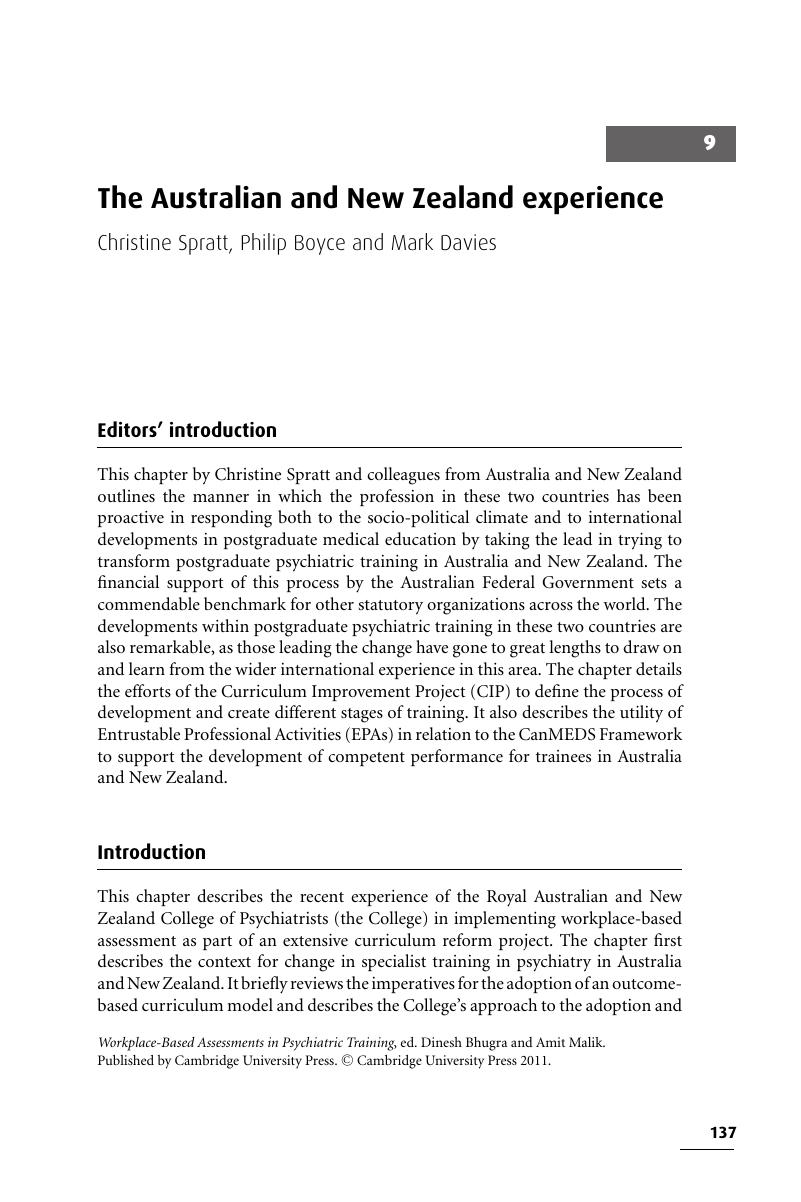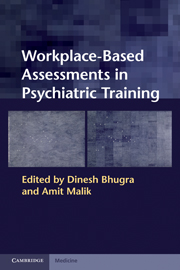Book contents
- Workplace-Based Assessments in Psychiatric Training
- Workplace-Based Assessments in Psychiatric Training
- Copyright page
- Dedication
- Contents
- Contributors
- Preface
- 1 Workplace-based assessments in psychiatry: setting the scene
- 2 Workplace-based assessments – an evidence-based overview
- 3 Assessing the patient perspective
- 4 Experience of workplace-based assessment in the UK
- 5 Assessing residents’ competencies: challenges to delivery in the developing world – need for innovation and change
- 6 In-training assessment: the Danish experience
- 7 The US experience of changing roles
- 8 Determining competence of psychiatric residents in the USA
- 9 The Australian and New Zealand experience
- 10 The Canadian experience
- 11 Workplace-based assessment in psychotherapy: a Canadian experience
- 12 Assessments and their utility: looking to the future
- Index
9 - The Australian and New Zealand experience
Published online by Cambridge University Press: 01 June 2011
- Workplace-Based Assessments in Psychiatric Training
- Workplace-Based Assessments in Psychiatric Training
- Copyright page
- Dedication
- Contents
- Contributors
- Preface
- 1 Workplace-based assessments in psychiatry: setting the scene
- 2 Workplace-based assessments – an evidence-based overview
- 3 Assessing the patient perspective
- 4 Experience of workplace-based assessment in the UK
- 5 Assessing residents’ competencies: challenges to delivery in the developing world – need for innovation and change
- 6 In-training assessment: the Danish experience
- 7 The US experience of changing roles
- 8 Determining competence of psychiatric residents in the USA
- 9 The Australian and New Zealand experience
- 10 The Canadian experience
- 11 Workplace-based assessment in psychotherapy: a Canadian experience
- 12 Assessments and their utility: looking to the future
- Index
Summary

- Type
- Chapter
- Information
- Workplace-Based Assessments in Psychiatric Training , pp. 137 - 150Publisher: Cambridge University PressPrint publication year: 2011
- 2
- Cited by



